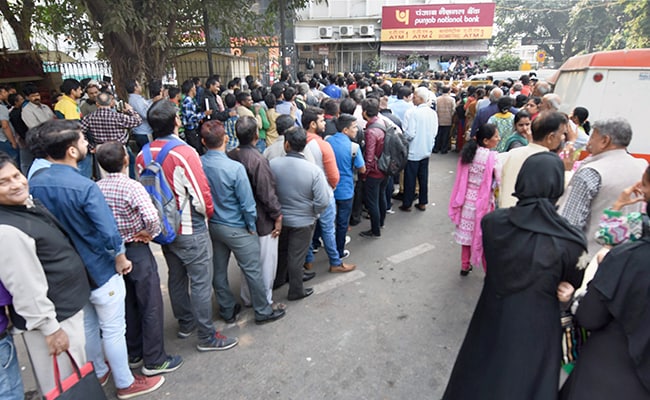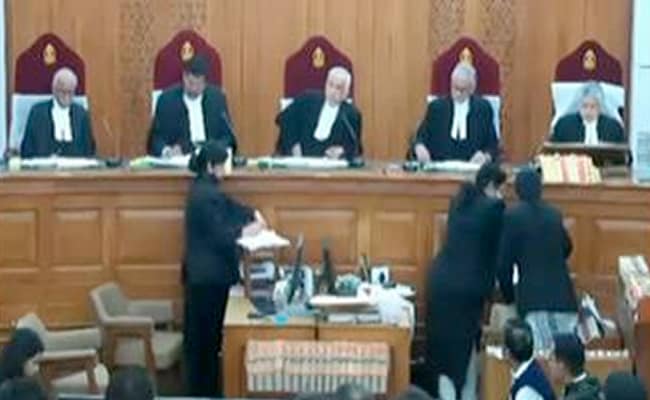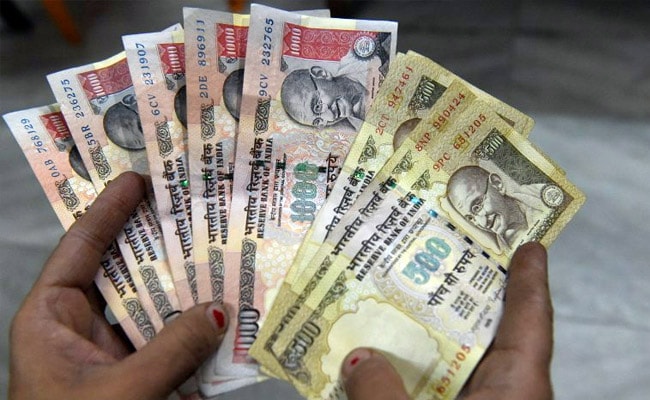2 years ago
New Delhi:
The Supreme Court today dismissed a batch of pleas challenging the Centre's 2016 decision on demonetisation and upheld the move.
"It is not relevant whether the objective was achieved or not," said Justice BR Gavai.
Centre's decision-making process cannot be flawed as there was consultation between the Reserve bank of India and the government, he said.
The Supreme Court had reserved its judgments on the batch of 58 petitions on December 7.
Here are the highlights on Supreme Court's verdict:
 Demonetisation Was Valid, Says Supreme Court, 1 Judge Disagrees: 10 Facts
Demonetisation Was Valid, Says Supreme Court, 1 Judge Disagrees: 10 Facts Notes Ban "Unlawful": Dissenting Judge In Supreme Court's 4:1 Verdict
Notes Ban "Unlawful": Dissenting Judge In Supreme Court's 4:1 VerdictJustice Nagarathna, in her minority verdict, held that demonetisation of Rs 500 and Rs 1,000 currency notes was vitiated, unlawful.
 Notes Ban Upheld: 5 Big Points From Supreme Court Verdict
Notes Ban Upheld: 5 Big Points From Supreme Court Verdict Note Ban Had To be Done Through Legislation, Not Notification: Justice Nagarathna
Justice BV Nagarathna of the Supreme Court says scrapping of Rs 500, Rs 1,000 series notes had to be done through legislation, not through notification.
Justice Nagarathna differed from the majority judgment on the point of the Centre's powers under section 26(2) of the RBI Act.
Parliament should have discussed law on demonetisation, process should not have been done through gazette notification, he said.
The top court's judgment came on a batch of 58 petitions challenging the demonetisation exercise announced by the Centre on November 8, 2016.
 2016 Notes Ban Valid: Supreme Court's Big Order
2016 Notes Ban Valid: Supreme Court's Big Order Justice BV Nagarathna Dissents
Justice BV Nagarathna differed from Justice B R Gavai's judgment on point of Centre's powers under section 26(2) of RBI Act.
The process could not have been initiated by Centre, Justice Nagarathna said.
As per RBI Act, recommendation for demonetisation should originate from the board of the RBI but in this case, Centre wrote a letter to RBI on Nov 7 advising such a recommendation.
Justice Nagarathna also held that like previous instances, demonetisation could have been executed through an Act of Parliament and not by an executive notification.
Supreme Court Upholds Demonetisation Decision
Demonetisation exercise cannot be struck down on grounds of proportionality, said Justice BR Gavai.
"The period prescribed of 52 days for exchange of notes cannot be said to be unreasonable," he said.
There Was Consultation Between Centre And RBI For 6 Months
"Though nine questions were framed, we have reframed six questions,"
Justice BR Gavai said.
"Restrictive meaning cannot be given to the word 'any' mentioned in Sec 26 of the RBI Act. Centre is required to take action after consultation with the Central Board of RBI. There was a consultation between Centre and RBI for six months," he added.
 Watch Live: Big Supreme Court Verdict On Centre's Notes Ban Decision
Watch Live: Big Supreme Court Verdict On Centre's Notes Ban DecisionWatch Live English News Channel NDTV 24X7, Live News on NDTV, News. We are broadcasting your favorite news channel all over the world for free, covering news, movies, music, sports, lifestyle and more on NDTV.com

